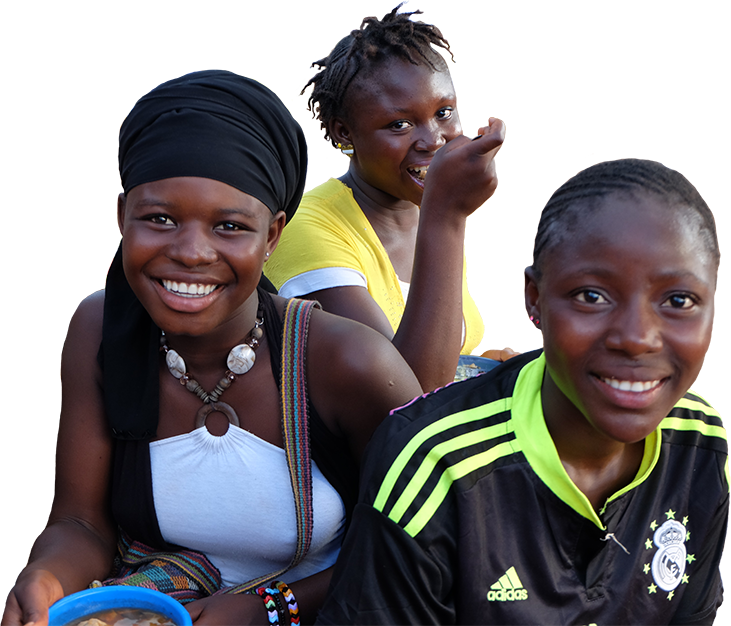Strong systems are important for implementing nutrition services and programs. Adolescents have unique nutritional needs, depending on and affected by their physical, social, and emotional development. Programs and services to support adolescents must be reflected in policies, protocols, strategies, and guidance. Policymakers and program managers need to strengthen the human resource, information, and financial systems to provide or expand nutrition services and programs in locations where adolescents are best reached. The Adolescent Nutrition Resource Bank includes examples of policies and protocols that address adolescent nutrition..If you have relevant systems strengthening resources, please send them to info@advancingnutrition.org.
We found 87 resource(s)
Ghana Adolescent Health Service Policy and Strategy 2016-2020
Policy published by Ghana Health Service in
The Ghana Adolescent Health Service Policy and Strategy 2016-2020 focuses on strategies to promote, prevent, and manage the health and development of Ghanaian adolescents. It provides a framework for health service provision and other health-related interventions for adolescents that can be implemented to support progress toward achieving health…
Tanzania National Multisectoral Nutrition Action Plan (NMNAP) 2016-2021: From Evidence to Policy to Action
Policy published by Prime Minister's Office, Tanzania in
Tanzania's National Multisectoral Nutrition Action Plan aims to improve maternal, infant, young child, and adolescent nutrition. The plan includes a focus on increasing school attendance among adolescent girls, using schools as an arena for health and nutrition interventions, and targeting communications to increase adolescent knowledge and…
A Time of Transition: Adolescents in Humanitarian Settings
Occasional Paper published by Plan International UK in
This report describes Plan International's work with adolescents in humanitarian settings. It includes summary data on the needs of adolescents in times of crises; mapping of the work Plan does with adolescents in humanitarian action (including nutrition); identifying trends in the work of other agencies with adolescents; and recommendations for…
Review of Programmatic Experiences to Adolescent and Women's Nutritional Needs in Low and Middle Income Countries
Technical Report published by SPRING in
This report reviews the approaches used, practices promoted, and lessons learned by projects designed to improve the nutrition of adolescent girls and WRA in LMICs. It provides information on global programmatic experiences and summarizes inputs, outcomes, and lessons learned from implementers carrying out nutrition programs for WRA. Policy and…
Plan Stratégique de Santé des Adolescents et des Jeunes (2015–2020)
Policy published by Ministry of Health in
This document outlines a strategic plan by the Ministry of Health to address various health and reproductive issues affecting adolescents and children in Burkina Faso. The plan includes specific objectives for improving adolescents and children, as well as indicators for tracking these objectives. Themes include sexual and reproductive health,…
Guineau-Bissau PLANO ESTRATÉGICO DE NUTRIÇÃO 2015-2019
Policy published by Ministeria de Saude Publica, Republica de Guine-Bissau in
This document is the Guineau-Bissau overarching nutrition strategy. The strategy promotes optimal nutrition for children from 6 months to 19 years of age, and advocates for good nutrition practices for children, young people, and adolescents at schools, health centers, and women's literacy centers.
Maternal, Infant and Young Child Nutrition (MIYCN) Policy, Maharashtra
Policy published by Public Health Department, Government of Maharashtra in
This document contains the MIYCN Strategy of Maharashtra, India. Among the strategy's provisions are ensuring that all adolescents have a healthy BMI through education about nutrition, health, and sanitation, and providing adolescents with IFAS to minimize the prevalence of anemia.
Starting from Girls: They Are the Source to Trigger a Change
Occasional Paper published by Save the Children in
This paper focuses on increasing the inclusion of girls in the global debate on nutrition, agriculture, and food security in Sub-Saharan Africa. It discusses what is overlooked or unknown about girls, their work, and their potential, and suggests possible directions for policymakers.



